A podcaster set out to find the truth about a woman’s death. True crime fanatics came for her when she decided it wasn’t murder
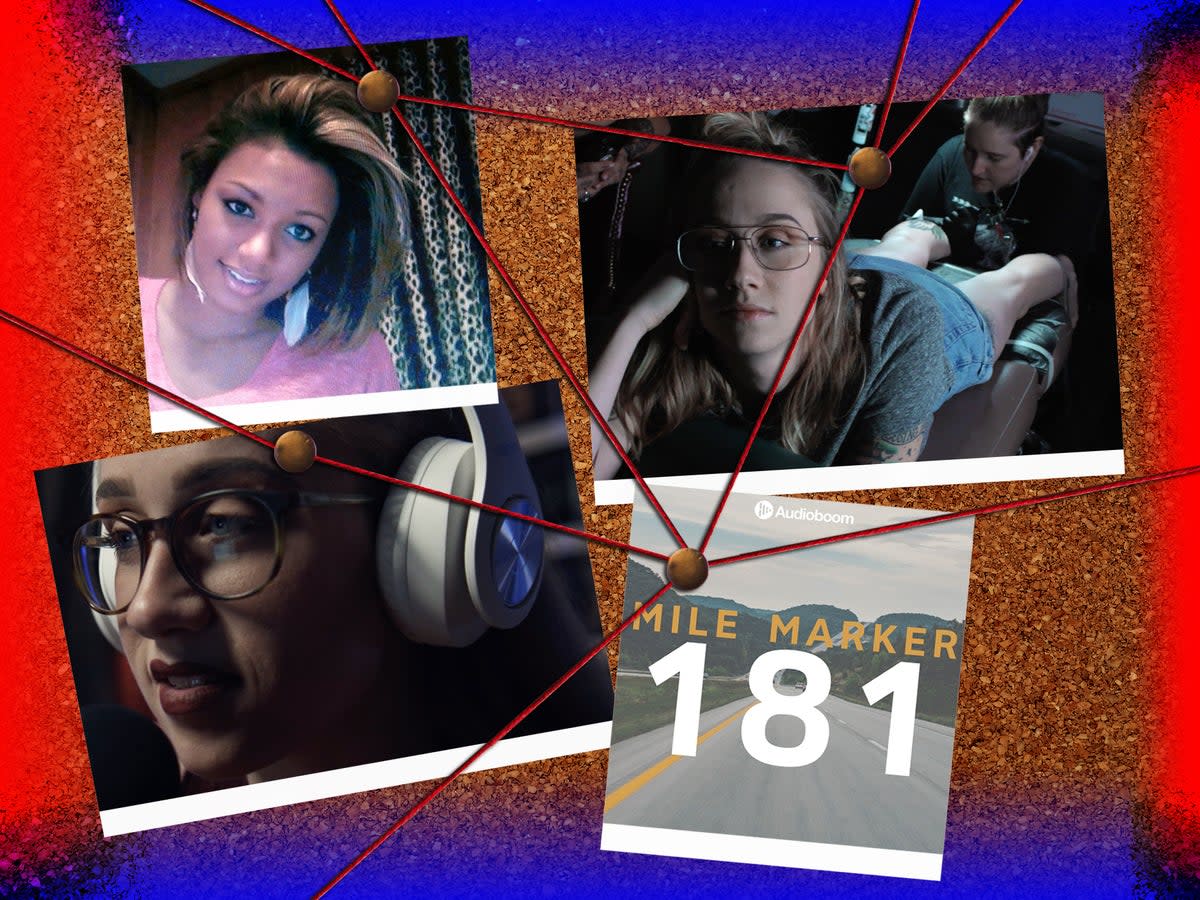
The scandal, born of a murder conspiracy, sparked a firestorm in a world already consumed with intrigue and chicanery. Podcast Mile Marker 181 and its host, Emily Nestor, became rising stars in the true crime sphere; her Appalachian twang and unpolished earnestness garnered legions of fans and sponsorships as she explored the 2011 death of a young Ohio woman.
The fledgling podcaster had been spurred on by local rumour and calls for justice from the family of Jaleayah Davis, who believed her fatal road accident could have been a murder that was covered up. Initially, Ms Nestor worked with the relatives — but as the popularity of Mile Marker 181 increased, her relationships with the Davis family began to break down. The divergence culminated in an abrupt end to the podcast after 23 episodes, when Ms Nestor informed her shocked listeners that she’d decided she was in agreement with the official record that Davis’ death was, in fact, an accident.
The podcaster’s world imploded as the insidious and ever-growing online community of true crime fans and amateur detectives — already active Redditers and hobbyists so committed that CrimeCon conventions have begun thriving — skewered her. Ms Nestor’s current Instagram bio includes the self-given label “True Crime Pariah.”
But the saga would be far from over for Ms Nestor; despite her retreat from the public eye, she’d given a filmmaker access to her life early on for a documentary about a small-town podcaster in a burgeoning creative — and professional — space.
And the film has turned out very differently from what both originally expected.
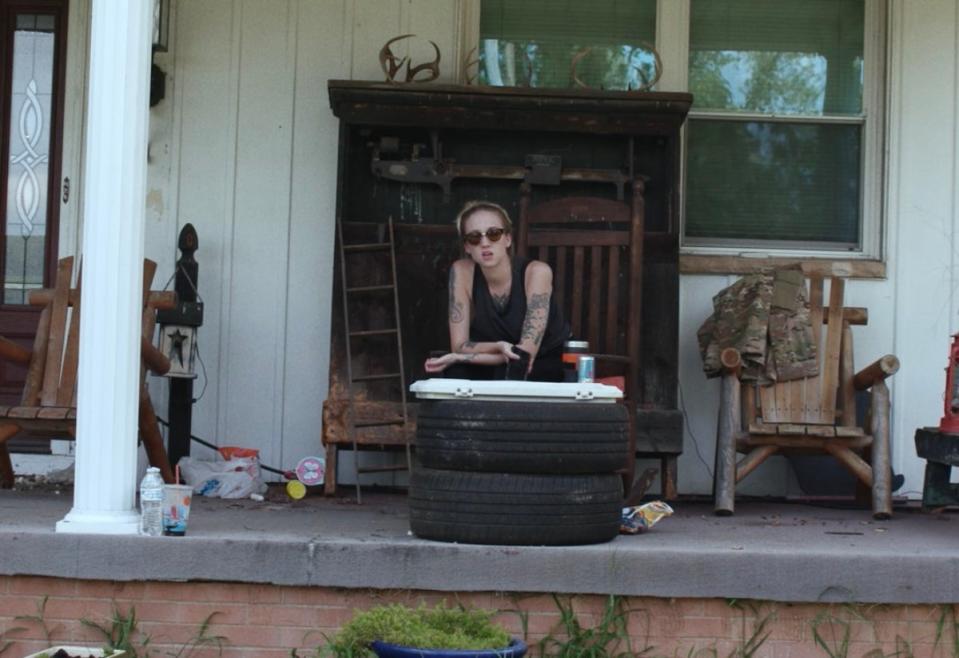
“At the beginning, it was just, ‘Oh, this is a unique voice in a region that doesn’t get a lot of media attention,’” filmmaker Chris Kasick tells The Independent, just days before the premiere of Citizen Sleuth at the South by South West (SXSW) festival in Texas.
“It wasn’t obvious what the story evolved into at all.”
Strangely, he’d embarked upon this project just a few years after inadvertently witnessing yet another about-face situation; he’d been “hired by the company Theranos and Elizabeth Holmes to do a documentary inside their office.”
The health technology and its founder were then famously revealed to be fraudulent.
“So I was in the office watching a large-scale sort of fraud operation,” he says. “It wasn’t obvious at the time ... it really impacted me, because I witnessed it from the inside and seeing it and not knowing all the answers.”
After that Theranos debacle, a documentary about a podcaster from Appalachia in an emerging medium sounded like a great opportunity, and it was also a chance to spend some time closer to home. Mr Kasick is originally from Ohio, and Ms Nestor was focused on the death of Davis, who was killed in November 2011 in Marietta, a city of about 13,000 in the south of the state.
Ms Nestor, from just across the border in West Virginia, had been a true crime fan from a young age, nursing a particular fascination with Clarice Starling, the Appalachian FBI agent played by Jodie Foster in The Silence of the Lambs.
“She had a slight Appalachian accent; she was a great role model ... it was a strong female character still in training at the Academy,” she says in the documentary, before listing some big-name true crime phenomena that also inspired her.
“I was watching The Keepers, I was watching Making A Murderer,” continues the blonde, tattooed West Virginian. “Michelle McNamara’s book, I’ll Be Gone In The Dark — I devoured it. And I thought, this is the kind of deep dive that I want to do.
“I mean, up until this year, I worked at a doggy daycare overlapped with waiting tables at Buffalo Wild Wings,” she says in the documentary, which first began filming in 2018. “Before Buffalo Wild Wings, I had bartended at a strip club because I thought that would be a good idea. Turns out I didn’t enjoy it as much as I thought I would, but I do have good stories — which is the point, right?”
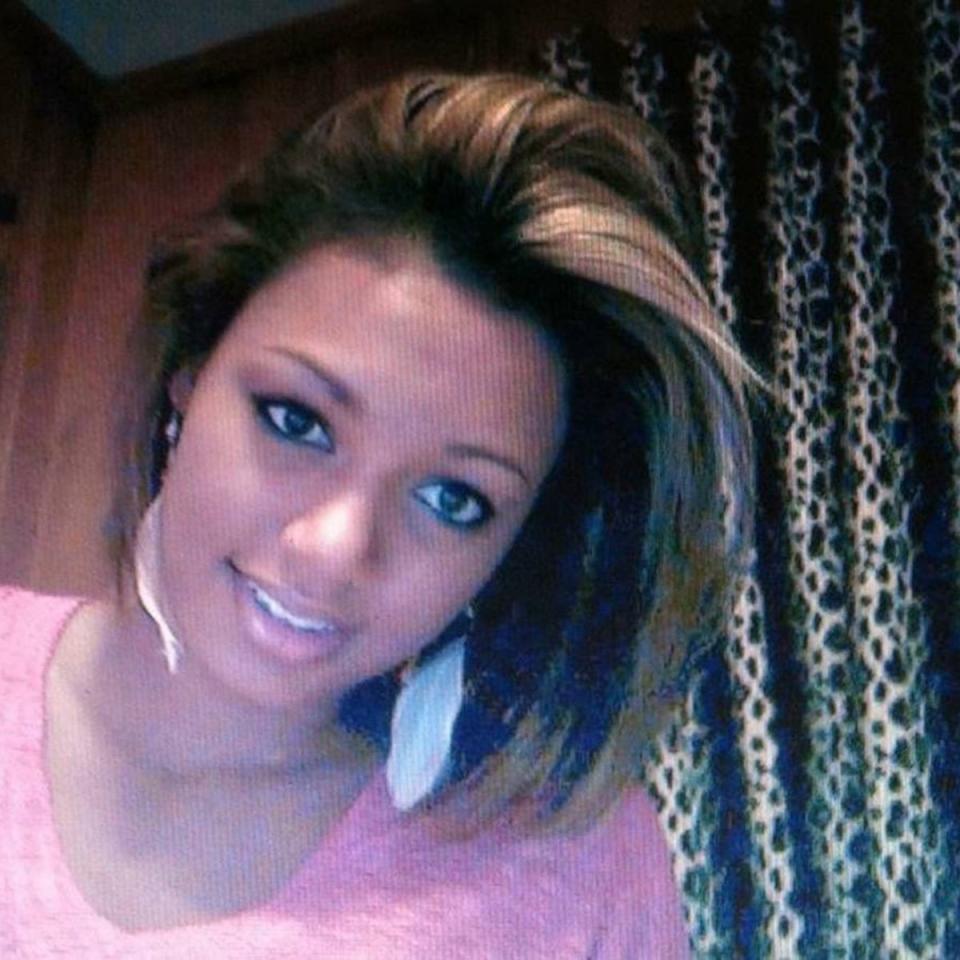
She moved on from those stories, however, to another more tragic one — about Davis, a woman near her age killed just miles away in a horrific road crash. The victim’s relatives had begun a Justice for Jaleayah campaign and believed her death may have been murder; the case sparked “local lore” and “obsession,” as Ms Nestor puts it in the documentary, with suspicion focusing on friends Davis had been partying with before the accident, as well as police, which some gossip claimed helped to stage a cover-up.
Ms Nestor contacted Davis’ mother, Kim, who agreed to participate in the podcast.
“I want to be perfectly clear: Kim is the only reason I’m able to do this podcast,” Ms Nestor said in Mile Marker 181. “She obtained over 700 pages of documents through the Freedom of Information Act. I got in contact with Kim about my interest in her daughter’s case. A week later, I had those same case documents and photos in my hands.”
Ms Nestor began diving into the documents while hitting the ground to investigate and releasing episodes in real time. She interviewed relatives — such as the victim’s grandfather — who were adamant there had been a murder and police missteps. She believed there had likely been a grave miscarriage of justice, and she was hoping to break the case wide open.
“Emily kind of had the calling, I guess,” her mother says in the documentary. “But because she didn’t go to college, she just assumed, you know, I can’t be a profiler, which is what she kind of wanted to do ... But actually, you can solve some crime without a degree, with enough know-how and enough gumption.
“I wasn’t familiar with what a podcast was,” her mother admits. “I was happy for her, but it didn’t mean a whole lot to me. I’m like, ‘Okay, you have fun, do what you want to do. Do what makes you happy.’ So I really didn’t understand what that meant. But it really snowballed.”
True crime addicts seized upon the podcast as another tale of brushed-aside murder, clinging to the storyline that pitted rich against poor, civilian against law enforcement, truth against lies. Mile Marker 181 began getting mentions in lists of podcasts to watch; Ms Nestor began getting sponsorships and making money; her platform grew at CrimeCon, the event evidence of the genre’s exploding idolatry.
The podcaster was being interviewed herself as well as speaking locally, answering questions about the case for fellow Appalachians who were eating up her content and its conspiratorial lean.
But things were not as smooth behind the scenes. In one particularly cringe-worthy instance, the podcaster interviews the local sheriff and seemingly expects him to undermine the report by his own department — before he gets up and leaves, chiding her personally.
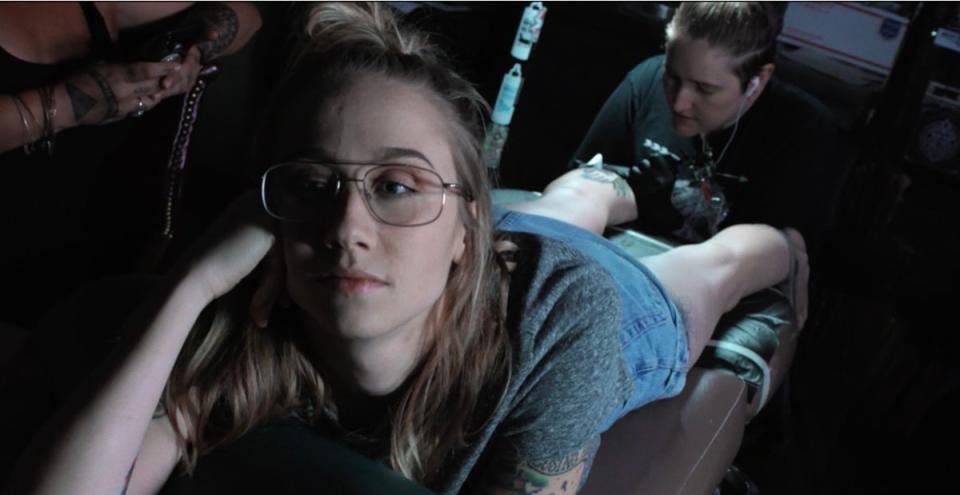
“I feel like I'm, like, chronically misunderstood,” Ms Nestor cries in the film. “And it just sucks, like, when somebody takes, like, offence to something that you actually had good intentions with. This is my job ... but people don't take it serious because I'm working for myself — like, I'm not working for a paper, I'm not working for, like, a news source.
“And, like, it's funny, because I don't belong with the journalists, and I don't belong with law enforcement. And I feel like I'm floating somewhere in between.”
She was also, as her podcast progressed through its second season, floating away from the murder theory — as Mr Kasick’s cameras rolled.
“We went on Emily’s journey with her, and I never expected the twists and turns it revealed,” he tells The Independent. “And it was happening in front of us, and we were reacting in real time to what was happening because it was like it was blowing up — it’s thrilling to see someone go viral in the moment, and then the opposite happens.
“It all falls,” the filmmaker says. “We were there for the whole thing.”
He’d already been doubting the murder theory as he followed along with Ms Nestor’s investigation, particularly after he’d spoken “early on” with one of the main “suspects” who’d been out with Davis on the night she died. Then he watched as Ms Nestor “starts getting the clues” and realising that times and other details which would support a murder theory weren’t adding up.
“Privately, she was telling me this was an accident,” Mr Kasick says. “And then I saw her go on this podcast and just push a murder theory.”
That moment is caught on film while Ms Nestor is being interviewed by another podcast — as is Mr Kasick’s follow-up question.
“Is it hard to talk about it as a murder when you think it was an accident?” he asks in the documentary. “I just realised you're doing that during it. And I was like, ‘Oh, you really had to click into a mode that is, like, dangerous territory.”
Ms Nestor gives him a long stare.
“Like where I need to cover my own ass? As far as a storyteller?” she says. “Yeah. It's a skill I'm learning. I just have to ignore everything that I've learned along the way and act like I'm investigating it actively. I mean, I still am — like, I'm not closed-minded. Like, somebody can prove to me that it was a murder. Like, I'm open to that. But it's hard to prove a murder when it wasn't one.”
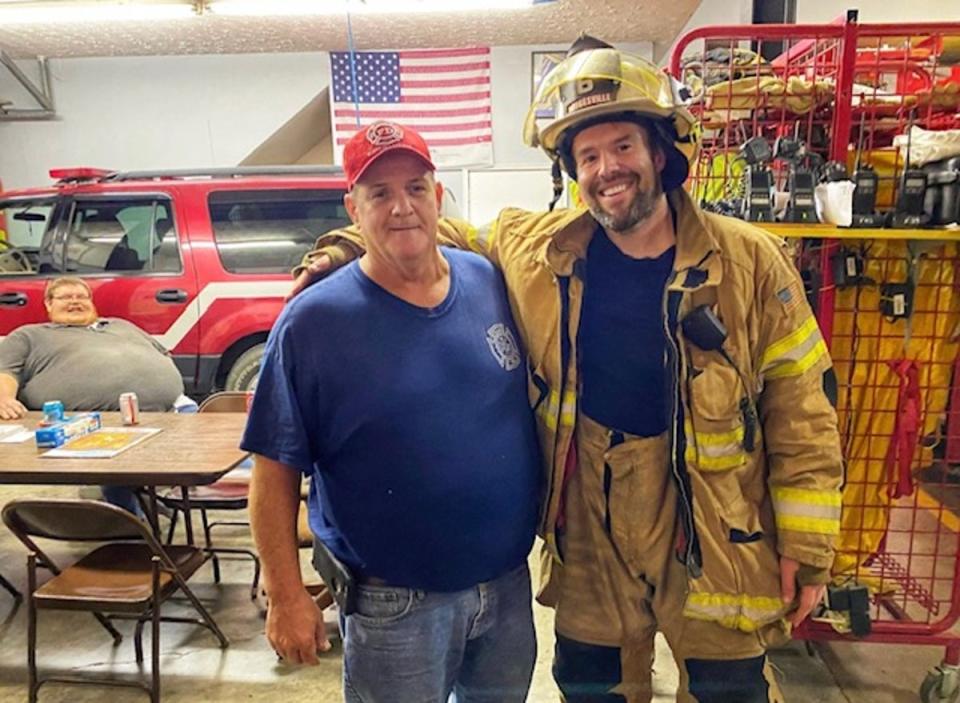
She would eventually admit the same in the final episode of her podcast, many episodes of which became unavailable, and confusion and conspiracy spiraled in the Reddit and true crime orbits. Before she did, though, Mr Kasick was there to watch her wrestle with her conscience.
“She was getting more and more quiet ... she was also now getting paid through promos and ads, and she was selling swag,” he tells The Independent. “All of a sudden, the business started rising for her and she needed that to live. But as the ethics started coming into question ... her struggle was an internal one of conscience, with her audience — because she had an audience of millions, where was getting messages and fame and money. And she felt a responsibility to them, in the end, to tell the truth. But that was a hard road to navigate, and ... it took a year for her to find the right words.”
In the meantime, the Davis family was becoming more and more unhappy, and the presence of Mr Kasick and the documentary were fueling discontent; an online petition cropped up to pull the podcast amidst claims of exploitation of and profiting from Jaleayah’s death.
Mr Kasick, too, had to navigate his own ethics and figure out with his team just how to make a film that had morphed into a different project entirely. The events and subject matter in the 500 hours of film sparked all manner of moral, logistical and creative quagmires — but eventually the path became clear.
“It became this story of conscience ... seeing a citizen sleuth, seeing Emily struggle with telling the truth to her audience because of the consequences involved in telling the truth,” he says.
As the premise of the podcast came undone, he says, “she could’ve just stopped -- but she decided that the truth was more important than anything and putting it out there, and it was really brave of her to do that.”
He had to weave a narrative while wrestling with the truth that he, too, was telling others’ stories to an audience; Ms Nestor explicitly points that out to him in the film during one of their exchanges.
“When the story became about telling the truth, and the meta layer of the film on top of it, where the film is making a true crime documentary that's also entertaining on top of her podcast, and what's the ethics of that ... and we're a part of this mechanism that she is also in, the meta layer was not obvious to me until really the beginning of the edit,” he says.
His team “were just like, ‘Well, this is incredible — and you’re wrapped up in this.” And I didn’t realise I was so wrapped up,” he says.
But the end product, he hopes, provokes serious and seeking debate about the ramifications of the true crime craze — and the ethics of telling (and often obsessing over) victims’ stories.
“I do hope there’s conversations about how to portray this, especially within the podcast space, because that’s the Wild West,” he says. “I mean, TV and documentary, that’s like vetted through screeners ... but anyone can get a microphone, anyone can get an audience and anyone can have a narrative. And how do these narratives affect a community and a victim’s family?”
He says that Ms Nestor filled a “hole in Parkersburg, the mid-Ohio Valley, as a voice for the underserved and people who haven't had justice, but she just wasn't right about it.
“And the the noble pursuit is honorable, but you’ve got to get your facts straight,” Mr Kasick says. “So I hope there is a larger conversation about that, about truth-telling and facts.”


